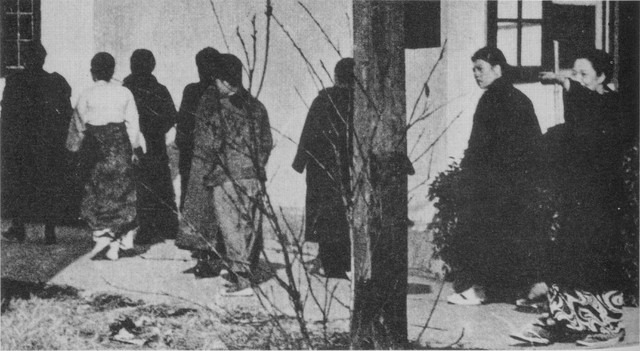The comfort women of Taiwan: we mustn’t let their history die
On 10 May, Taiwan’s last known ‘comfort woman’ died at the age of 92. The term ‘comfort woman’ refers to the victims of the Japanese military’s sexual enslavement during the Second World War. This woman has been left unnamed but is known and referred to simply as ‘grandma’.
Japan ruled Taiwan from 1895 to 1945 and, during World War II, the Japanese military sexually enslaved more than 200,000 women. It is estimated that 2000 of these women were Taiwanese and tens of thousands were Korean. These women were recruited by the military to assist in duties during the day and then forced to act as ‘comfort women’ for the soldiers at night.
One victim told their story, saying that while her fiancée was sent to the south after being drafted by the military, the Japanese police told her that they had a job for her. The woman was told that she would be preparing meals and mending torn clothes for the soldiers. She said: “I did not want to go but the police said that all men and women must come because the country was at war.” During the day they worked as seamstresses or cooks, but at night they were ‘comfort women’. Unfortunately, many women felt they couldn’t tell their husbands when they returned and so kept their secret for years.
It has been decades since and still Taiwan has not received any compensation or a ‘genuine’ apology from Japan
Even after the end of the Second World War, although the enslavement of these women came to an end, the repercussions of such abuse impacted these victims for the rest of their lives. When one victim returned home after the war, she was labelled a ‘whore’ and struggled to get married. Once she finally found a partner, she was unable to conceive as a result of her abuse and was forced into divorce by her mother-in-law. These victims were often unable to integrate back into society after being left with a tarnished reputation, leading to many struggling to support themselves as a result. This is why organisations began to form, which provided hotlines for victims while demanding an apology as well as compensation from Japan.
Although Japan’s Asian Women’s Fund (AWF) offered ¥2 million (approximately US$18,000) to every surviving victim, Taiwan refused the amount as it would not be coming from official government sources. They felt it was a way for the Japanese government to avoid taking full responsibility while still being able to move on from the issue. Therefore, it has been decades since the period of sexual enslavement and still, Taiwan has not received any compensation or a ‘genuine’ apology from Japan. The Taiwanese government offered to pay a certain amount to each survivor but has made it clear that they see this as an ‘advance’, as they still anticipate a settlement amount from the Japanese government.
When discussing the issue of ‘comfort women’, however, it is also important to look at how Taiwan views this history. Taiwan’s President Ma Ying-Jeou said that Taiwan was “perhaps the only country that doesn’t believe the comfort women were forced”. We can see this through the difference between the success of the Taiwanese museum dedicated to the history of ‘comfort women’ compared to the Korean museum. The Taiwanese museum utilises the name ‘grandma’ that refers to not only the last survivor, but all victims of Japan’s sexual enslavement. It is called the Ama Museum, where Ama means ‘grandma’ in Taiwanese Hokkien; the name reveals how long it is taking for their history to be acknowledged and compensated.
Compensation is used as a way to end the discussion
However, Taiwan’s museum only opened in 2016 and is struggling to stay open, whereas Korea’s museum was opened in 1998 and they continue to have open demonstrations against Japan’s sexual slavery. Korea also has multiple monuments commemorating the victims, whereas Taiwan has rejected offers to fund such statues due to fear of backlash and protest. Unfortunately, the issue has become politicised and is now intertwined with Taiwan’s political parties. Some supporters of the Ama Museum did not attend its opening ceremony as they did not want to be associated with or used by political parties. Criticisms of any aspect of the Japanese during their rule are seen as expressing a ‘political affinity toward or allegiance with mainland China’, therefore opinions on ‘comfort women’ and Japan’s sexual slavery are inseparable from such politically charged dialogues.
Taiwan sees the Japanese government as tackling this issue as if it is something they need to overcome, rather than a mistake that they must accept and learn from. Compensation is used as a way to end the discussion. It allows Japan to wash their hands of the abuses committed during the Second World War and move on. Now that the last ‘comfort woman’ has passed away, we must be careful not to let their history die with her. Education about the topic should be seen as just as, if not more, important than financial compensation. It encourages dialogue about the controversial topic and ensures that the nations involved do not forget about the abuse that took place now that there are no known surviving victims remaining.

Comments